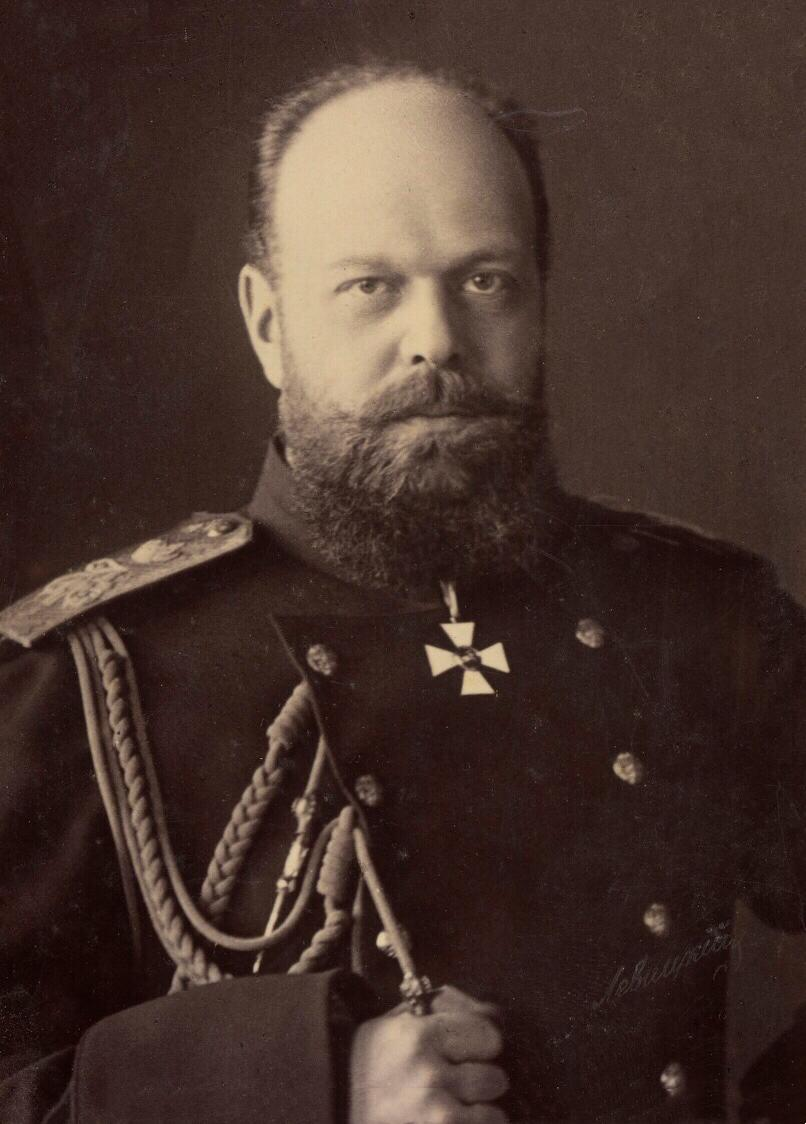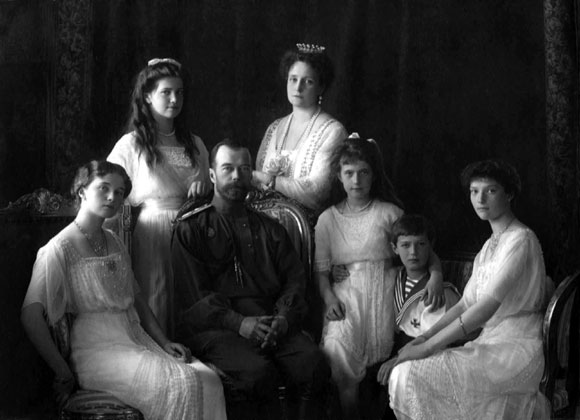
Alexander III suspended all of his father, Alexander II’s, reforms. His reign was all about repression, censorship and Russification, but also about peace and stability. Most importantly, Alexander III’s reign was a time of great industrial development.
BACKGROUND
Immediately after his ascension to the throne, as a direct reaction to the murder of his father, Alexander III put a halt to his father’s reforms. He disbanded the legislative council that had been preparing the constitution, and became vengeful against both radical and moderate liberalists.
REPRESSIONS
Large-scale repressions were carried out by the secret police, called the Okhrana, and their network of spies. Pogroms against Jews and other ethnic minorities, deportations, and the closing of newspapers and universities occurred.
Alexander III was a Russian nationalist. He launched several campaigns of Russification in the non-Russian border districts.
ECONOMIC GROWTH
Alexander III’s reign was also a period of international peace and stability. No major war took place under his rule. The economy was improving, although still slowly, in the 1890s. One of the notable figures leading Russia into industrial progress was Alexander III’s Minister of Finance, Sergey Witte, who negotiated foreign capital, and favorable loans from France.
In the next decade, the industrial output was already soaring. One of the key projects, in that early period, was the construction of the world’s longest railway, the Trans-Siberian Railway, that started in 1891.
DEATH
Despite many assassination attempts, Alexander III died of natural causes, leaving his eldest son, Nicholas, to reign as the last emperor of Russia.

The reign of the last Emperor, Nicholas II was a chain of disasters and miscalculations that took the country closer to revolution, and to the end of autocratic monarchy in Russia.
BACKGROUND
The last Tsar, Nicholas II, sincerely believed in his divine right to govern, and had no intention of allowing the introduction of a constitution, or of making any liberal reforms.
He had a tendency to take questionable advice from the likes of his wife, Alexandra Fyodorovna, and the religious healer, Grigory Rasputin, who was later killed by members of the Romanov family in 1916.
1905
The Russo-Japanese War of 1904-05 was expected to be a short, triumphant campaign, but turned out to be a disastrous defeat for Russia, a cause of international shame, and the loss of the greater part of the imperial fleet.
The Revolution of 1905 was triggered by the Tsar’s armed troops opening fire on peaceful demonstrators near the Winter Palace. Those people had tried to present the Tsar with a petition to improve their living conditions. The event is, even today, known as Bloody Sunday.
The Bloody Sunday events resulted in a wave of strikes and mutiny, and Nicholas was forced to grant people their basic civil rights, as well as to create the Imperial Parliament (Duma). The document was prepared by Prime Minister, Sergey Witte, and is known as the, “October Manifesto,” of 1905.
STOLYPIN’S REFORMS
Nicholas II deeply distrusted the parliament. In 1907, after finally establishing the Tsar’s control over the Duma, the newly appointed young Prime Minister, Pyotr Stolypin, enacted the Agrarian Reform. It was about dismantling the system of rural communities and creating independent farms in the countryside. These progressive reforms produced promising effects, but also created a lot of tensions, and were left unfinished. Stolypin himself was killed by a radical leftist in 1911.
ABDICATION IN 1917
The catastrophic results of World War I brought about the February Revolution in 1917. Tsar Nicholas II was forced to abdicate in favor of the Provisional Government. Nicholas, his wife Alexandra, their four daughters Olga, Tatiana, Maria, Anastasia, and son, Alexey, were put under house arrest at Tsarskoye Selo, then Tobolsk and finally in Yekaterinburg. A year later, they were all executed by the Bolsheviks.
You must be logged in to post a comment.